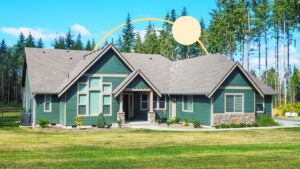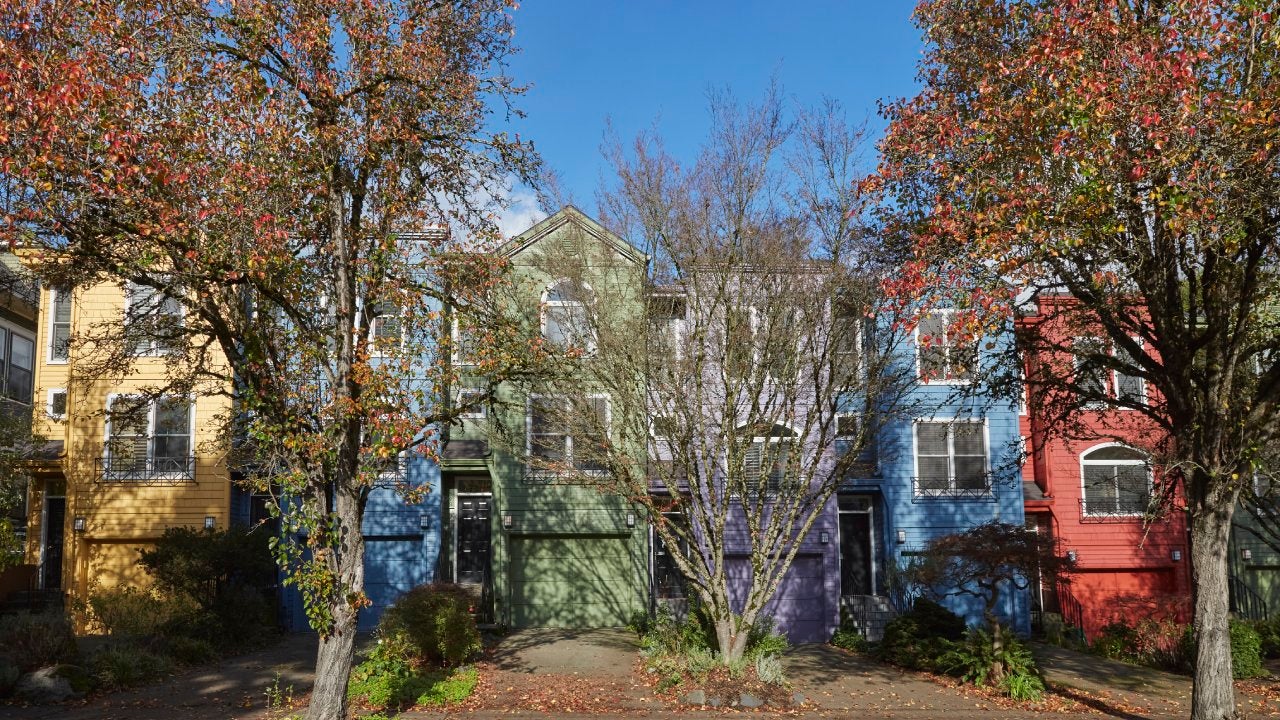What is a co-op? A complete guide




Key takeaways
- A co-op is a housing option in which the owner owns shares in a residential cooperative, rather than owning the unit outright (as you would with a condo or freestanding house).
- Being a co-op shareholder gives you the right to occupy the unit your shares represent, and to use any common areas in the building.
- Co-ops are typically managed by boards similar to HOAs, with resident board members who oversee the building’s finances and may approve or deny potential purchasers.
What is a co-op in real estate?
A co-op, or housing cooperative, lets you own shares in a residential building or complex, just as you can own shares in a stock. When you buy a unit in a housing co-op, you don’t technically own the unit itself. Instead, what you are actually purchasing is a fixed number of shares in a housing corporation that owns the building where the unit is located.
That makes you a shareholder in the corporation — the corporation owns the building, essentially serving as its landlord, while you serve as a shareholder/resident. Being a co-op shareholder gives you the right to occupy the unit your shares represent, and to use any common areas of the building (which might include amenities like a gym, pool or playground), subject to the terms of an occupancy agreement or proprietary lease.
In big cities, where these arrangements tend to be most common, co-ops are typically in large buildings with many units — as such, most co-op homes in America are apartments. These can be small studios or sprawling multi-bedroom homes. But a co-op arrangement can be applied to just about any form of housing, including townhouses or single-family homes situated on land that’s owned by a co-op.
How do they work?
When you purchase in a co-op, you are not buying real property. You are buying shares in the corporation, which gives you the right to occupy one of its units. Those shares are considered personal property.
A co-op is managed by a board, typically elected shareholder-members who can vote on rules and policies and changes to them. “The board is tasked with determining the amount of income the co-op needs to collect from its shareholders in order to adequately fund operations and reserves,” says Scott Smiler, an attorney with Gallet Dreyer & Berkey in New York City, where co-ops are extremely common.
This income is collected in the form of monthly maintenance fees that each shareholder must pay to cover things like utilities and property taxes. Co-op fees are often higher than those charged by condo associations because co-ops typically pool all monthly expenses into this one maintenance bill.
“An entire co-op building is one tax lot, so the building receives one tax bill and each shareholder will pay a portion of that, based on their shares,” says Alexandra Columbo, an attorney with New York City-based Capell Barnett Matalon & Schoenfeld.
The condition and financial strength of a co-op is critical. Each co-op has a reserve fund used to pay for the costs of repairs and replacements of the building’s major components, “which might include a new roof, new elevator system, new windows or a new heating system,” Columbo says. “This reserve fund is for unexpected expenses as well.”
If there is not enough money in the reserve fund, the housing cooperative may have to implement an assessment, or an additional fee that would either be added to the monthly maintenance or be payable in one lump sum.
Condos vs. co-ops
Co-ops and condos sound and often look a lot alike. And in fact, they have one major thing in common: Occupants reside in separate units within a building or structure that has shared common areas. But there are substantial differences between co-ops and condos.
When you buy a condo, you receive title to a parcel of real property (the physical home or unit) in exchange for your purchase price, similar to buying a house. With a co-op, though, you buy shares in the corporation — so instead of getting a deed, you get a certificate of shares, along with a proprietary lease or occupancy agreement.
Co-ops also usually have a more stringent approval process when it comes to buyers, and they often have strict policies when it comes to things like pets and subleasing. “The approval process for co-ops can be daunting and rigorous, with a substantial amount of paperwork and disclosing a lot of personal information,” Columbo says. You’ll be interviewed by the board, as well. Consequently, co-ops can be more difficult to sell than condos, as buyers are more heavily scrutinized.
As a result of all this, co-ops will typically cost less than condos. “Compared to condominium units, co-op units tend to trade slightly lower in sales price due to the co-op board’s right to approve all sales,” Smiler says. “Some people like a co-op’s exclusivity and added layer of vetting, but this also limits the pool of potential buyers, thus reducing the sales price.”
Pros and cons of a co-op
Pros
- Community: A co-op’s strict rules and policies can result in a safer and quieter building, along with respectful and responsible neighbors who have a vested interest in keeping their home a nice place. And shared amenities mean you’ll know your neighbors and have a mutual sense of community.
- Lower costs: It’s usually less expensive to purchase a co-op than it is to buy a condominium. “Condos are usually 25 to 30 percent more expensive,” says Columbo. You’ll probably pay lower closing costs for a co-op than you would for a condo, too.
- Tax benefits: A portion of the monthly maintenance — up to 60 percent in some cases — is tax deductible. The amount that is deductible is dictated by the portion that is applied to real estate taxes and mortgage interest.
Cons
- Strict buyer requirements: The vetting process for co-op buyers can be rigorous — bordering on intrusive, some think — with background checks, interviews and referrals commonly required. “The co-op board can deny a potential buyer for any reason that isn’t protected under local and federal anti-discrimination laws,” says Columbo. “The board does not have to disclose why they denied a prospective buyer unless there is a claim for discrimination. This lack of transparency can be tricky for sellers.”
- Limited financing options: Some traditional lenders don’t offer mortgages for co-op purchases, given the extra complication of a buyer needing the board’s approval. Co-op purchases can require a higher down payment, as well — often between 10 percent and 20 percent, and sometimes even more — because as a shareholder, you share liability for the corporation’s debt and expenses.
- Restrictive subletting rules: Typically, co-op owners aren’t allowed to rent out or sublet their unit. If it is allowed, it’s likely subject to board approval and only for a limited period of time. Other restrictions, similar to HOA rules, are usually also in place.
What co-op buyers should consider
Because co-op shareholders share liability for the entire building’s well-being, there are important considerations to take into account. Before you buy into a co-op, do some research into its physical and financial health. (Buyers are typically provided with a detailed packet of the building’s financials, but ask your real estate agent if you’re not sure.) Questions to think about include:
- Are the building’s finances well managed?
- Does the building have sufficient financial reserves?
- Are the building’s major systems, like the roof, boilers or elevators, nearing the end of their life, which could mean an assessment on the horizon?
- Is the building involved in any litigation?
- What is your unit’s share in the building’s underlying mortgage, and when is it due? Is there a balloon payment? Would the financials allow for refinancing when the mortgage comes due?
- Does the co-op own the land the building sits on, or does it have a land lease? If it’s the latter, when does the lease expire and/or what are the renewal terms?
FAQs
Why we ask for feedback Your feedback helps us improve our content and services. It takes less than a minute to complete.
Your responses are anonymous and will only be used for improving our website.
You may also like




